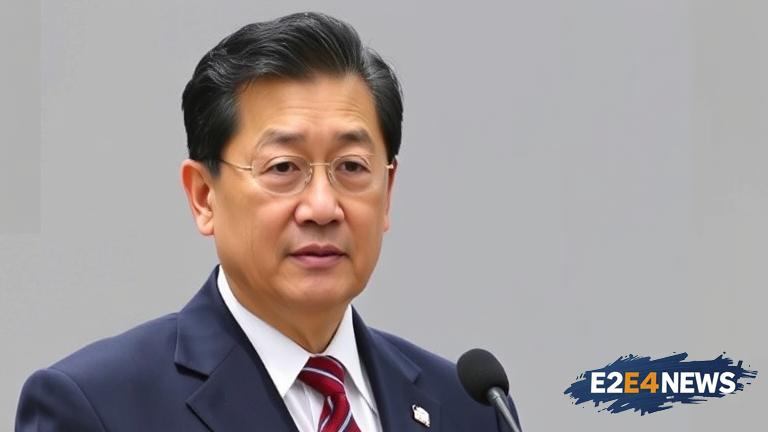South Korea is on high alert as it prepares to face a 15% tariff imposed by the United States, a move that is expected to have significant implications for the country’s economy. The tariff, which is set to be implemented in the coming weeks, will affect a wide range of South Korean exports, including electronics, automobiles, and steel products. In response to the tariff, South Korean President Lee has announced plans to visit Washington in two weeks, where he will meet with US officials to negotiate a resolution to the trade dispute. The visit is seen as a crucial opportunity for President Lee to persuade the US to reconsider its decision and find a more mutually beneficial solution. The tariff is the latest development in an ongoing trade dispute between the US and South Korea, which has been simmering for several months. The US has accused South Korea of unfair trade practices, including dumping and subsidies, which have allegedly harmed American businesses. South Korea has denied these allegations, arguing that its trade practices are in line with international norms. The trade dispute has significant implications for the global economy, as South Korea is a major player in the international trade landscape. The country is the world’s 12th largest economy and a key partner for many countries, including the US, China, and Japan. The tariff is expected to have a major impact on South Korean businesses, particularly small and medium-sized enterprises, which are heavily reliant on exports to the US. Many of these businesses are already struggling to cope with the economic fallout from the COVID-19 pandemic, and the tariff is likely to exacerbate their difficulties. The South Korean government has vowed to take all necessary measures to support affected businesses, including providing financial assistance and implementing policies to boost domestic demand. However, the government’s options are limited, and it is unclear how effective these measures will be in mitigating the impact of the tariff. The visit by President Lee to Washington is seen as a crucial opportunity for South Korea to negotiate a better deal and avoid the worst effects of the tariff. The president is expected to meet with US Trade Representative Katherine Tai and other senior officials, where he will argue that the tariff is unfair and will harm both American and South Korean businesses. President Lee will also meet with business leaders and lawmakers, where he will seek to build support for a more constructive approach to trade relations between the two countries. The US has indicated that it is willing to listen to South Korea’s concerns, but it is unclear whether a resolution can be reached. The trade dispute has significant implications for the future of US-South Korea relations, which have been strained in recent months. The two countries have a long history of cooperation, but the trade dispute has created tensions and raised questions about the future of their partnership. Despite these challenges, both countries have expressed a commitment to finding a resolution and strengthening their economic ties. The visit by President Lee to Washington is a key step in this process, and it is hoped that it will mark a turning point in the trade dispute. The outcome of the visit is uncertain, but one thing is clear: the future of US-South Korea trade relations hangs in the balance. The tariff is a major challenge for South Korea, but it also presents an opportunity for the country to rethink its trade strategy and seek out new opportunities. The government has announced plans to diversify its exports and reduce its reliance on the US market, a move that is seen as a key step in building a more resilient economy. The tariff is also a wake-up call for South Korean businesses, which must adapt to a changing trade landscape and find new ways to compete in the global market. The visit by President Lee to Washington is a crucial moment in this process, and it is hoped that it will mark the beginning of a new era of cooperation and economic growth between the US and South Korea.
